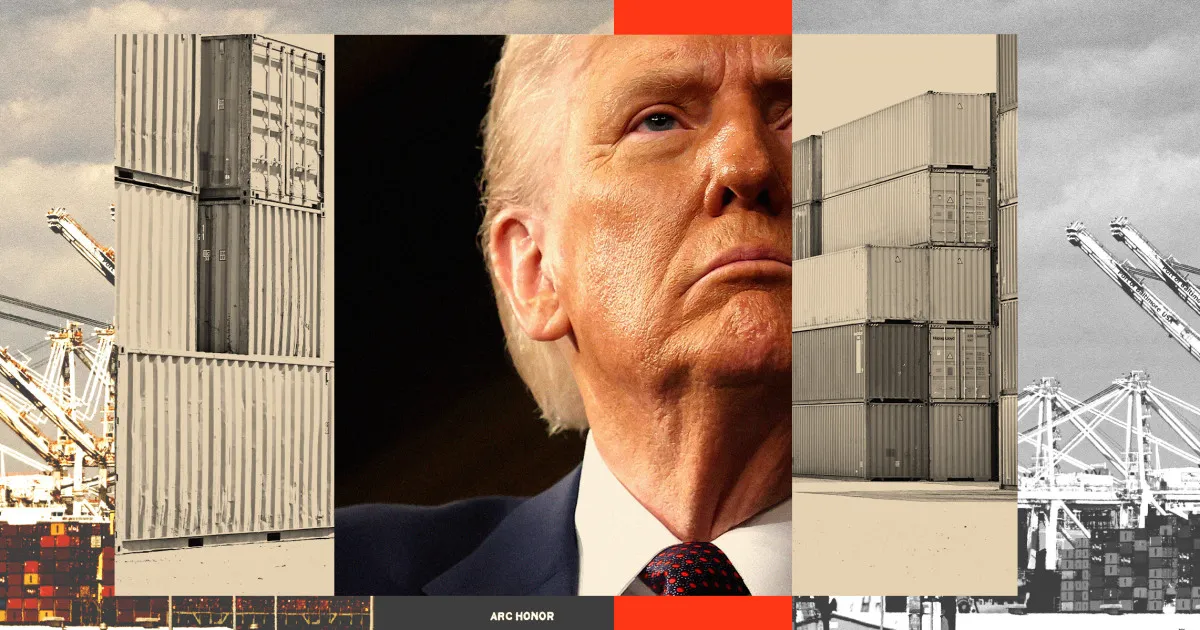
On Wednesday, President Donald Trump was set to unveil the most significant set of new trade barriers in decades, marking what he termed “Liberation Day.” This initiative involves imposing duties on imported autos and auto parts, with Trump hinting that these tariffs will be reciprocal, impacting other nations as well as specific sectors like pharmaceuticals and computer chips.
Trump's election was largely rooted in his perceived capability to revitalize the economy, and his campaign promises included a clear commitment to imposing tariffs. However, the recent announcements have caught many, including economists and members of the business community, off guard. Michael Strain, director of economic policy studies at the American Enterprise Institute, expressed this sentiment, stating, “When confronted with the argument that Trump was talking big on tariffs, the response was ‘It’ll be the same as in 2016: He didn’t do it.’”
Strain noted that the past two months have seen a shift away from traditional GOP policies, leaning heavily towards MAGA (Make America Great Again) principles. This has left business leaders feeling confused and disappointed by the administration’s direction.
The implementation of these tariffs has been inconsistent, characterized by rapid proposals and reversals. Just a day before the announcement, White House Press Secretary Karoline Leavitt mentioned that Trump and his team were still “perfecting” the new policy. As the announcement drew near, countries like Vietnam and Israel moved to ease duties on U.S. goods, while European leaders remained hopeful for negotiations.
The looming threat of tariffs has generated significant uncertainty within the economy, leading to plummeting stock markets and diminished business and consumer confidence. The Federal Reserve has preemptively adjusted its inflation forecasts, anticipating that businesses will pass on the costs associated with the new duties to consumers, resulting in higher prices for a wide array of goods, from avocados to automobiles.
Despite Fed Chair Jerome Powell suggesting that the inflationary effects of the duties might be “transitory,” recent surveys indicate that consumers expect price increases to persist. According to the University of Michigan’s latest consumer confidence survey, long-term inflation expectations have surged to a 32-year high, with two-thirds of consumers anticipating rising unemployment over the next year—the highest percentage since 2009.
This trend highlights a concerning vulnerability for consumers, as a strong labor market and rising incomes have been crucial for supporting consumer spending in recent times. Businesses are also bracing for increased costs, with one executive in the oil and gas sector reporting a 25% rise in costs for casing and tubing due to tariff threats.
Trump has provided various justifications for these trade duties, including the revitalization of American industry, revenue generation, and efforts to combat the flow of fentanyl and undocumented immigrants. This rollout represents the culmination of Trump’s long-standing desire to address America’s trade deficit, often claiming that other countries have been “taking advantage of” the U.S.
Even prior to the Wednesday announcement, Trump was already declaring success, asserting that private companies had committed to more investments in the U.S. within just two months than in the entirety of the Biden administration's four years. While some businesses have pledged increased spending, analysts have expressed skepticism about the actual concessions achieved from trading partners and noted that many commitments may have already been underway.
From an economic standpoint, many experts argue that Trump’s perspective on trade is outdated. While it’s true that inflation-adjusted median earnings faced stagnation since the late 1970s, they have seen a steady increase over the past decade. Moreover, despite the U.S. having a significant trade deficit, it remains a global manufacturing leader, with exports achieving record values when adjusted for inflation.
Nevertheless, the Trump administration appears committed to an economic-nationalist agenda, willing to implement these measures regardless of their broader economic implications. Strain cautioned against the misallocation of workers from higher-paying jobs in the services sector to lower-paying manufacturing roles, emphasizing that American workers deserve better opportunities.